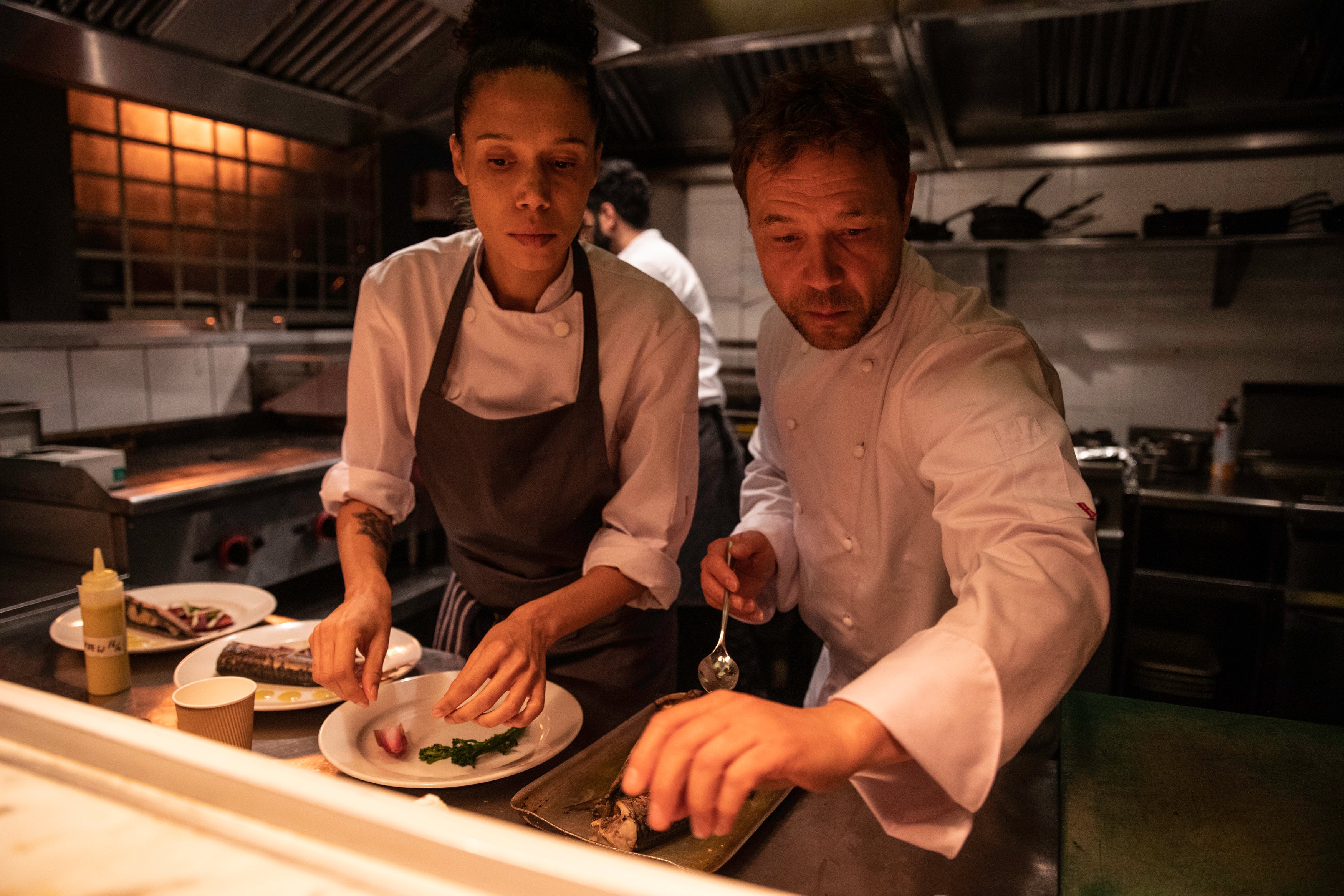Hell’s kitchens: We need to talk about the reality behind The Bear and Boiling Point
Hit TV shows have been praised for their depiction of the high octane, stress-filled world of the restaurant industry. But the dark side of that industry has been hiding in plain sight for a long time – and it’s time the truth was told, writes James Moore


Imagine: you’re sat in a swish restaurant, having spent weeks stashing away any change you can find and picking up extra work to foot your half of what’s shaping up to be a fairly disastrous bill.
But it’s worth it, because across from you sits your intended: the love of your life. The lighting is soft, the buzz of conversation gentle, the decor perfect, the service just right. Polite, efficient and unobtrusive. What could be better?
Then the starters arrive – perfectly presented in the centre of a pair of those slightly oversized plates restaurants love to use. And suddenly, unbidden, a scene from Disney’s The Bear or the BBC’s Boiling Point enters your mind.
Perhaps it’s one where Carmen (Jeremy Allen White), the protagonist of the first of those, just loses it; regressing into shouting and screaming at anyone who crosses his path, particularly his ambitious but resolutely competent sous chef Sydney (Ayo Edebiri).
She is charged with holding things together while her boss melts down. Suffice it to say – to avoid spoilers for those watching on traditional TV – Boiling Point also depicts some stress-related horrors of its own.
The latter, a spin-off from the remarkable, single take, single shot, indie British movie of the same name – and its smash hit transatlantic rival – is propulsive, naggingly addictive, eminently binge-worthy... and stressful to watch. Both are.
Of course, there is bound to be some dramatic licence at work. But the viewer is nonetheless left wondering: is this how it is? Is this what actually goes on? Because if it is, why on earth would anyone choose to work in that environment?
BBC Two’s The Hidden World of Hospitality is a reality show covering the same territory. Tom Kerridge, its presenter and a real-life chef, said this of The Bear: “I thought it was the best-dramatised depiction I’ve seen of working in a kitchen – it’s the most realistic. Obviously, it’s a drama-comedy show that takes artistic licence, but it does portray the pressures that people are under and the mental anguish involved with running a restaurant.”
He’s not been alone in praising the series’ realism. One thing neither show focuses on, however, is the issue of sexual abuse in the kitchen. We know that happens, too. There have been enough lurid allegations down the years to make the case for the industry’s public prosecution.
Of course, you want Carmen and Carly (Vinette Robinson), the bosses and the primary foci of The Bear and Boiling Point respectively, to win the day – or at least hold their own. But you want their staff to survive the maelstrom too. Sex pests don’t make for sympathetic characters unless they’re there to get their comeuppance. Sadly, in the real world, they all too frequently get away with it, while their victims are left traumatised.
There is an Instagram account called “Hospitality Bulls***” which gives voice to this, and other sins of the industry. Could it be that these shows might actually be underplaying it? One quote reads: “My mental state was… so bad that the day I left I had a mental breakdown and swallowed over 40 painkillers in an attempt to kill myself. Tom and his team made me hate the industry I love.”
There are plenty of others like it. Kerridge describes the industry as “magical”. Hospitality Bulls*** suggests strongly otherwise.
The problems it gives voice to aren’t new. The loud, macho head chef with a penchant for bullying was something of a cultural trope for a while. It was almost celebrated in those ever-ubiquitous TV cookery shows.
I vividly remember an investigative TV current affairs series in which a hidden camera was used to shine a light on a very nasty reality when I was younger. One young chef in particular attracted the ire of a very big cheese, who was himself a fixture of TV cookery programmes. The way he treated his staff was horrible to watch.
But that sort of show doesn’t tend to enjoy high ratings – and the bully rode out the brief scandal that resulted. I saw him on MasterChef not long afterwards.
TV dramas, on the other hand, enjoy a wider viewership. They can still cut through the noise and embed themselves in the culture, even in the age of streaming. The Bear appears to be doing that. I confess this is highly unscientific, but when I hear a TV series being talked about on an American football podcast I take it as a clear sign of it stamping itself on the public consciousness.
Enough to affect our couple’s appetite at our fictional restaurant? To have the diner wondering, how was this made? Is the person who created it going to be okay on their way home – or will they be in tears? That, I don’t know.
I do know that a conversation about ill-treatment in the hospitality sector is long overdue. So, much better if these shows spark one. A restaurant meal should be a pleasure. It is much less of one if its creation makes the cooks sick.






Join our commenting forum
Join thought-provoking conversations, follow other Independent readers and see their replies
Comments